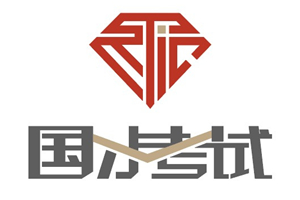If teams matter so much, why do firms still focus on individuals
There is no “I” in team. But there is one in “autopilot”. Despite the growing importance of teamwork in organisations, the processes used to manage employees have carried on much as before. Bosses may wax lyrical about collaboration, but the way they reward, review and recruit has not caught up.
People in organisations have always worked in concert with others. But the emphasis on teams is growing, for a variety of reasons. Technology has made the sharing of ideas and information easier, while hybrid working has made it more vital. (There’s a reason it’s not called Microsoft Silos.) The software industry has spread the gospel of teams – agile, scrums, OKRs and all the rest of it – into all kinds of places.
Teams, it turns out, are better at solving complex problems, according to a recent paper by Abdullah Almaatouq of the MIT Sloan School of Management. Research also suggests that people have a greater attachment to their work group than to their organisation; you’re less likely to go for lunch with a logo.
Knowledge is also accumulating as to what makes teams tick, the subject of this week’s episode of Boss Class, our new management podcast. Project Aristotle, a famous bit of research by Google into the characteristics of its best-performing teams, identified “psychological safety” – comfort to speak one’s mind – as the most important ingredient, alongside things like dependability, role clarity and meaningful work. Different teams excel at different things. Analysis by Lingfei Wu of the University of Chicago and his co-authors found a correlation between team size and types of scientific research: larger teams develop existing ideas and smaller ones disrupt the field with new ones.
But a greater emphasis on, and understanding of, teams does not generally translate into matching management practices. Recruitment processes focus on the achievements of the individual rather than the collectives they have been in. Performance management is still largely a one-player sport. Reviews are usually based on individual targets, as are bonuses. Metrics are often confined to concrete outputs rather than softer team-based measures, such as how trusted people are. It doesn’t help that many bosses have little idea what their teams really do. Soroco, a software firm, and academics at Harvard Business School and the Wharton School of the University of Pennsylvania asked managers to describe the processes that they thought took up most of their teams’ time. On average they did not know or could not recall 60% of what their team members did, making them more like high-functioning goldfish than bosses.

There are good reasons for much of this. People move jobs and get promoted one by one, not as battalions. Rewarding people on the basis of team performance can lead to unfairness: free-riders might get too much recognition or hard workers might be penalised for someone else not pulling their weight. It’s difficult to quantify team contributions. When teams are made up of people from different departments – or form for limited periods – managers find it harder to know what their direct reports are up to.
But these problems are not insurmountable. When hiring people, it is possible to assess traits that make for good group members: scoring well on a test that asks participants to determine what people are feeling from a snapshot of their eyes is correlated with being a good team player, for example. Peer reviews can give a good sense of how people are seen within teams.
The worry that team-based bonuses may encourage free-riding also seems to be overblown. A recent study by Anders Frederiksen of Aarhus University and his co-authors looked at the impact of introducing group-based incentives at a manufacturing firm, and found it sparked a big leap in performance. That jump was not just because the scheme incentivised existing workers to be more efficient, but also because it attracted more productive new hires.
Employees are individuals; managers should never forget that. But if teams are where a lot of the magic happens, bosses should have better ways to get the most out of them. Working out what they do all day might be a good place to start.















